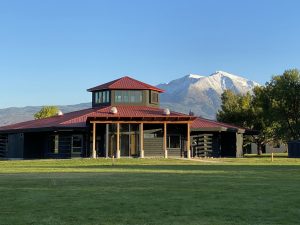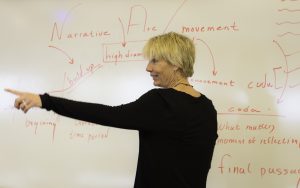LEGACY GIFTS
5: The Basic Planning Tools
Although a will is the essential estate planning tool, it is not, as most people believe, carved in stone. A will may reflect your written intentions for the disposition of your estate, but there are other legal documents that may override your will:
- Trusts
- Named beneficiaries of retirement plans
- Partnerships or other business agreements
- State laws
- Your will
Regardless of any other steps you take to plan your estate, you will want to execute a last will and testament. If you don’t have a will designating the disposition of your property, the state will make decisions about who gets what assets, along with other legal decisions that may not be in accord with your original intentions. It’s known as “dying intestate” and should be avoided at all costs. Dying intestate can be costly in more ways than just financial.
You’ll also want to name the estate executor in your will -- this is the person or institution who will administer the distribution of your estate.
- Substitutes for wills
Several plans and financial instruments can function alongside your will to pass assets to your heirs. Think of substitutes for wills as alternative ways of leaving property or assets that are in addition to your will, not in lieu of it.
Arrangements like life insurance policies, joint investment and bank accounts, IRA's and other retirement accounts, royalties, and shares in a family business can be "will substitutes" and should therefore be reviewed, and amended if need be, as you plan your estate.
- Revocable trust basics
I've heard about "revocable trusts." How do they work?
A revocable living trust is a trust you create during your life, titling all or selected assets to it that will be managed by a trustee. It is revocable because the creator (grantor) of the trust can terminate the trust at any time during their life. You can serve as the trustee during your life if you wish. At the time of your death, the trustee will distribute or continue to manage the assets within the trust in accordance with your wishes.
There are some distinct advantages to a living trust. They include:
- All trust assets will be distributed or managed as you wish at your death and will not be reviewed by the Probate Court, thus saving probate court costs. If you own property in another state other than your state domicile, your estate will avoid being subject to more than one probate court.
- In your living trust you can appoint a trustee to manage trust assets in the event that you can no longer do so. At death, the trustee can continue to manage trust assets for any living beneficiaries for their lives or for a term of years.
- In contrast to the Probate Court, which has public access, a living trust will preserve your family’s privacy.
- A living trust is not a device that will save you estate or inheritance taxes, but it can assist you in reducing your estate settlement costs. You can still name and benefit your charitable interests in your living trust. You would use the same kind of bequest language that you would use in a will.
- Other estate planning tools
"Leave no stone unturned," said the Greek dramatist Euripides. And so it is with estate planning.
Though we have covered the basics, there are additional planning tools you should not overlook when it comes to the protection of you, your heirs, and your assets. That is, after all, the purpose of an estate plan, so you may want to consider some or all of the following additional planning tools:
- Power of Attorney, Health and Financial. The designation of someone you trust to make decisions regarding your medical care and financial affairs when you are unable or no longer willing to make those decisions. They may be assigned to separate individuals or combined and assigned to a single individual.
- Living Will. This is an advanced directive to your physician that provides information relative to your wishes in the matter of life-sustaining care. Do you or don’t you wish to be kept alive by artificial means? (In some states, if you refuse life-sustaining care you must also have available a non-resuscitation order in addition to your living will.)
- Emergency Information List. This is a road map to help untangle the paper trail leading to important documents, names, addresses, phone numbers, and other details that provide information relative to obtaining the assets of your estate. A simpler method would be to keep everything of that nature in a fireproof box and turn it over to a trusted family member for safekeeping.
- Instructional Letter. Written instructions passing along your personal wishes regarding final disposition; burial, cremation, obituary information, funeral plans; any such matters not included in other documents.
Consider making a gift through your will or trust.
Here's the language you'll need.
 Next: Who Can Help You
Next: Who Can Help You
 Back
Back
Contact Us
Planning your estate and legacy for future generations, including your charitable interests, takes careful evaluation. Consulting with the appropriate professionals can assist you.
Mark Bell, Director of Development
mbell@crms.org
(970) 963-7220
The gift planning information presented on this site is intended as general. It is not to be considered tax, legal, or financial advice. Please consult your own personal advisors prior to any decision.
Read full disclaimer | Sitemap | Planned Giving Marketing Content © 2026 by PlannedGiving.com.
If you would like to begin a conversation regarding ways in which you can remember CRMS in your estate, please contact Mark Bell, Director of Development, at (970) 963-7220 or mbell@crms.org.
Towne Allen ’69
Carol Baily ’69
Ralph Beck ’73
Katharine Bradley Bennett ’67
Inez Black
Emily Bray ’75
Chris ’93 & Heidi Bromley
Chelsea Brundige
Barbara R. Buchanan ’65
Bonnie Holden Carter ’58
Sara Bunn Chesney ’77
Beach Clow ’77
Sherri Draper
Katherine Dumont*
William Dumont ’57*
Lee Ann Eustis – Honorary Alumna ’68*
Patricia Fender*
Michael ’63 & Jane Flax
Dutton & Carolyn Foster
Andrew G. Gould ’60
Katherine Gould-Martin ’61
Mary Whitford Graves ’60
Anne L. Gwathmey ’78
Lee Hall ’83
Beth Finder Harris ’60
Bradford Havice ’58
Erin N. Hayne ’95
Ted Hepp* ’61
Louis Jaffe ’64
Steve & Karen Lynn Keith
Karen Kidwell ’72
Amy Kilham ’69
James Koons ’72
Starr Lanphere* ’60
Jeffrey & Amanda Leahy
Lynn Bradley Leopold ’60
Margaret A. Lewis
Marian “Lolly” Lewis ’69
Mary Crouch Lilly*
Christopher W. Link* ’74
Ralph & Lynda Lipe
Sam & Pete Louras
Jay Marling '91
Sean McEvoy ’83
Suzi McKinley ’96
Beth Caldwell McNiff* ’63
Peter McWhinney ’78
Jan & Amos Melendez
Mary Wilmer Mills ’72
Loulie Molloy
William A. Moore* ’60 and
Lorna Grindlay Moore
Wick Moses* ’66
Sandra Mowry
James Nagel ’73
Virginia C. Newton
Malott Nyhart ’68
I.V. Pabst ’69
Katherine Paddon ’80
Bill ’61 & Becky Parzybok
Anthony Perry* ’55
Ilsa Perse ’66
Cynthia Yates Price ’72
Ramelle Cochrane Pulitzer ’68
Lisa Raleigh
Frank Reynolds ’87
Cory Hardie Ritchie ’92
Barbara O’Neil Ross
Rob ’58 and Aly Sayre
Colin Bunnell Schieck ’78
Susie Schlesinger ’68
John Schubert ’74
John Schweppe*
Jonathan Siegel ’71
Pat Stein Spitzmiller ’60
John Stickney ’57
Virginia E. Touhey ’74
Lynda Walters ’80
John T. Watson*
Stan Wattles '80, The Howard Bayne Fund
Tad Whitaker ’94
Ashley Whittaker ’89
Anonymous (2)
*indicates deceased
Please complete this confidential Holden Circle membership form and return it to development@crms.org.
Cash Bequest to Colorado Rocky Mountain School
A cash bequest provides Colorado Rocky Mountain School with a specified sum of money from a donor’s estate. These bequests are fulfilled second, after specific and before residuary bequests.
“I give _____ Dollars ($_____) to Colorado Rocky Mountain School, a Colorado non-profit corporation (tax ID Number: #84-0425174), 500 Holden Way, Carbondale, Colorado 81623 to further the objectives and purposes of Colorado Rocky Mountain School.”
Residuary Bequest to Colorado Rocky Mountain School
A residuary bequest is made from the residue, or what remains in a donor’s estate after specific and cash bequests, taxes, settlement costs and debts are satisfied. This type of bequest is sensitive to changes in the size of the estate over time.
“I give the residue (or _____ percent of the residue) of my estate to Colorado Rocky Mountain School, a Colorado non-profit corporation (tax ID Number: #84-0425174), 500 Holden Way, Carbondale, Colorado 81623, to further the objectives and purposes of Colorado Rocky Mountain School.”
Specific Bequest to Colorado Rocky Mountain School
A specific bequest gives a specific item or specific piece of property to Colorado Rocky Mountain School. Such bequests are fulfilled first, before cash and residuary bequests. If the donor disposes of the specified property during his or her lifetime, there will be no bequest to Colorado Rocky Mountain School.
“I give ________________ (describe asset) to Colorado Rocky Mountain School, a Colorado non-profit corporation (tax ID Number: #84-0425174), 500 Holden Way, Carbondale, Colorado 81623 to further the objectives and purposes of Colorado Rocky Mountain School.”
- If you are considering naming CRMS as a beneficiary in your estate plan, please work with your attorney or estate planner to structure your estate and write your will so as to best carry out your wishes.
- You might find these resources helpful: Personal Estate Planning Kit - Lesson Book · Record Book
- These videos provide general information about estate planning and planned giving.
 MYCRMS
MYCRMS





 Virtual Tour
Virtual Tour